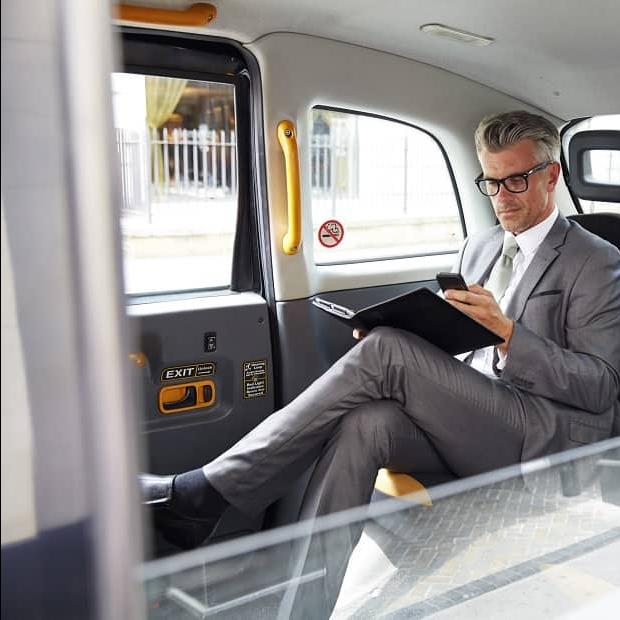Are You Getting More Car Mileage and Taxi Expense Claims?
The way we work, travel and interact has fundamentally changed in 2020. With fewer people taking public transport due to social distancing concerns, cars and taxis have become the safest option for getting to the office, or those meetings that simply can’t be had online. Our recent research with Wakefield shows that 37% of SMB travellers expect limiting their use of public transportation and 26% predict using their personal vehicle more for travelling.
Claiming Mileage and Taxi Expenses in a Changed World
One of the downsides of this could be a rise in employee—reported mileage claims, as some of our customers are reporting. As one of the top employee spend categories, car mileage and claiming for petrol has always been an area prone to overestimation and errors. It’s not always easy to work out. Not only can this impact an organisations profits, but the information needed for compliance and tax reporting can get overlooked.
Automated Mileage Tracking (From Your Mobile)
Aside from instances of deliberate overestimation, most employees have enough on their plate when travelling for work. A salesperson – let’s call him Rob – who travels from client to client, needs to remain focused on his next customer, not on clocking his miles and remembering to submit them.
If Rob had a GPS mobile app in which motion sensors auto track his mileage and, at the end of the trip, add the distance into his expense system, life would be a whole lot easier. He could also set the app to automatically track the distance travelled during certain working hours. Rob could forget all about clocking and expensing his mileage and focus on closing his next deal.
This is exactly what Concur Drive allows him to do. Finance managers can also ensure policy compliance for only those trips reimbursed by the company at the company approved rates. For instance, is mileage only reimbursed when travelling from the office? Or are trips from home included? Will weekend trips be reimbursed?
So not only is Rob and his sales manager happy, so is his finance manager. Everything is digitally logged for expense claim auditing and thanks to the increased accuracy and visibility into spend, cost savings are made.
All Hail the Taxi Partners
What might have been a luxury for even the most high-ranking employees once – taking a taxi rather than getting the train to the office or to a meeting – makes more sense for everyone in today’s world, as outlined in this Government guidance. Returning to the office with those paper taxi receipts is neither practical nor possible in most cases today. Using expense technology connected to a range of taxi partners, those transactions are automatically populated in an expense claim for the employee to give a once over and submit.
In another scenario, a purchasing manager – let’s call her Nina – has to travel around her geographic area to visit multiple suppliers. As a non-driver, she used to prefer to travel by train, but in recent times she has had to conduct some of those meetings in person, using a taxi to get there.
Here, she has linked her Concur Expense account with travel partners including Uber and Addison Lee and her taxi receipts are now automatically forwarded to SAP Concur as an expense claim. She doesn’t have to do anything except book the taxi and concentrate on her meeting.
Alternatively, if Nina has to hop in a taxi without booking via an SAP Concur partner, she can take a photo of her taxi receipt using Concur Expense and machine learning automatically reads the data and creates an expense claim. The spend amount, date and supplier are instantly visible to the finance department. At the end of the week or month, Nina’s pockets and purse aren’t stuffed full of taxi receipts and she doesn’t have to spend valuable time increasing them and sending them off as manual expense claim.
On Your Bike
Two wheels (or legs), rather than four, might also be an option for staff looking for alternative ways to get to work or meetings. Active Travel is a Government initiative which aims to boost the number of people cycling or walking to work. Schemes like Cycle to Work come under this umbrella but like any new initiative, they require some consideration to make them actually work.
A Marketing Manager – let’s call her Alex – would love to cycle to and from work, but if she’s to be presentable at her morning meeting, she’ll need to have access to things like a hanging rail or locker for her clothes, maybe a hairdryer and a mirror. She also might need her morning meeting pushed back to mid-morning to allow her to avoid rush hour.
Whether it’s Rob driving to clients, Nina cabbing to suppliers or Alex cycling into work, employers have to adapt to the new ways their employees are travelling for work and enable them to get reimbursed quickly without adding pressure to the employee or the finance team.
SAP Concur solutions provide automated management of expenses like these as well as invoice spending at a time when increased visibility, control and agility is at the top of most organisation’s priorities.
Contact us if you’d like advice about the best processes for reclaiming these expense types or to talk more broadly about getting better efficiency of your company spend processes.
